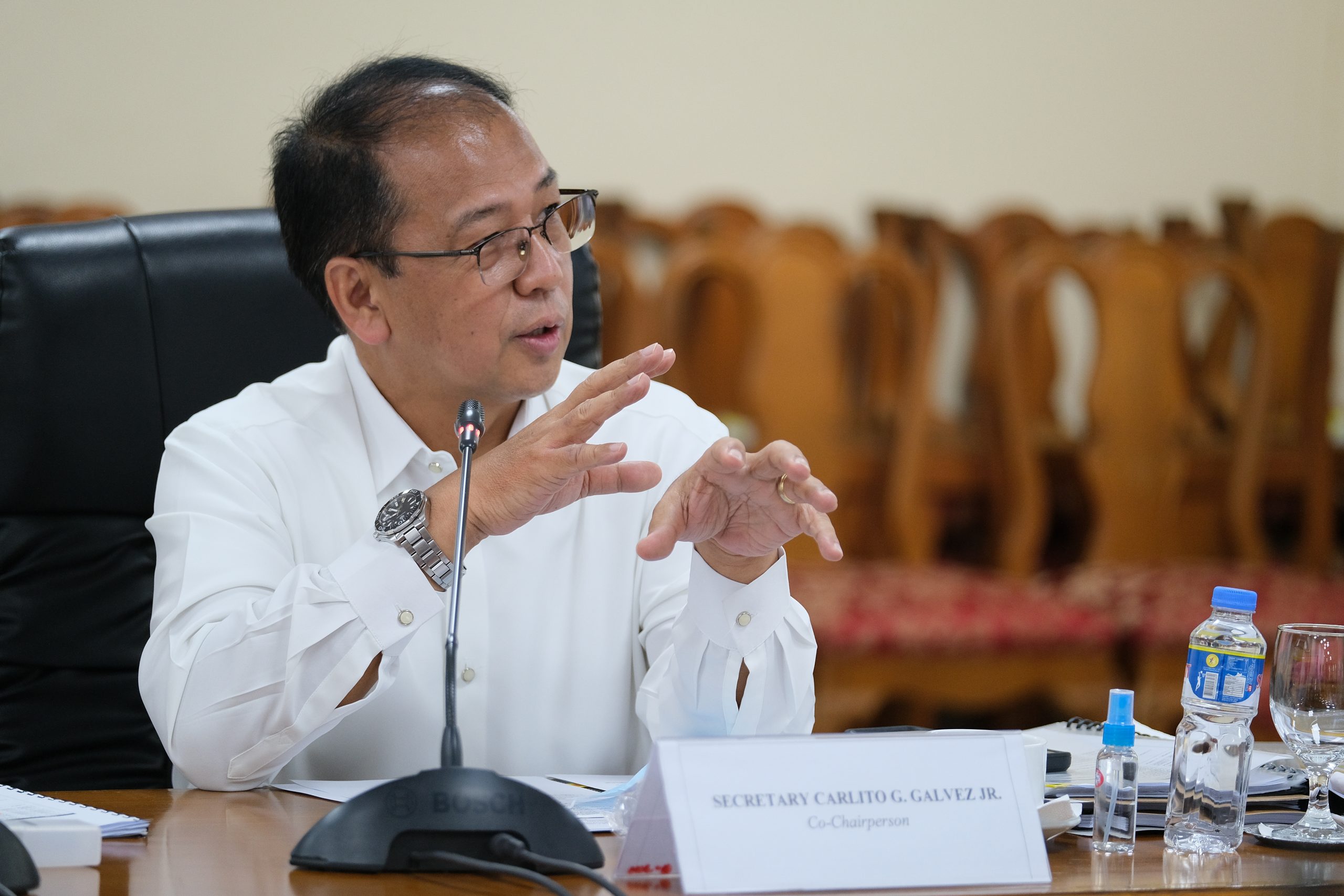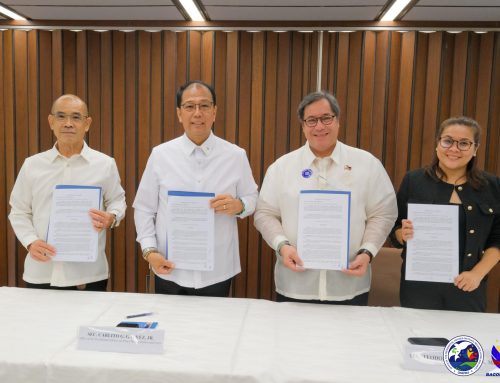PASAY CITY (09 August 2022) — Presidential Adviser on Peace, Reconciliation and Unity Sec. Carlito G.Galvez Jr., underscored the need to protect the rights and welfare of the country’s indigenous peoples as the nation celebrated National Indigenous People’s Day.
Despite the challenges being faced by the country’s IPs, the peace adviser believes that they are among the most reliable partners of the national government in achieving peace, reconciliation and unity in communities affected by armed conflict.
Partners in achieving peace in communities
This is the reason, Galvez said, why the Office of the Presidential Adviser on the Peace Process (OPAPRU) has ensured the protection of the rights and welfare of the IPs through the peace agreements the national government has signed with the various rebel groups.
The peace adviser said the peace accords with the Moro Islamic Liberation Front (MILF), Moro National Liberation Front (MNLF), Cordillera Bodong Administration – Cordillera People’s Liberation Army (CBA-CPLA), and the Rebolusyonaryong Partido Manggagawa-Pilipinas/Revolutionary Proletarian Army/Alex Boncayao Brigade-Tabara Paduano Group (RPM-P/RPA/ABB-TPG) reflect the government’s concern for IPs.
“Through the peace tables we have established, we want to ensure that our IPs are part of the peacebuilding and development process. We want them to play a more active role in their communities as instruments of positive change,” Galvez said.
The OPAPRU is also implementing various programs that aim to uplift the lives of IPs, which include the Social Healing and Peacebuilding Program (SHAPE) and Payapa at Masaganang Pamayanan Program (PAMANA).
“We recognize that our IPs will be crucial in implementing our mandate of fostering peace, reconciliation and unity nationwide. Our agency’s interventions are therefore designed not only to address their needs but also to capacitate them,” Galvez said.
The SHAPE Program focuses on addressing the challenges being confronted by vulnerable groups which include the IPs, internally displaced persons (IDPs) women and youth by mainstreaming the National Action Plan on Women, Peace and Security (NAPWPS).
All of the SHAPE’s interventions aim to promote social healing, mutual understanding and reconciliation among those affected by armed conflict, help rebuild their lives, and empower them as agents of peace and development.
The PAMANA Program, on the other hand, is implementing various socio-economic interventions that seek to improve the living conditions of residents in isolated, hard-to-reach, and conflict-affected communities across the country.
The OPAPRU is also formulating a Healing and Reconciliation (HR) Framework and process for indigenous peoples for the Transformation Program for former members of the communist group.
The HR Framework will help inform the processes and initiatives being implemented by the agency IPs through its LPE, SHAPE and PAMANA Programs.
The HR Framework has five phases: Trust-Building and Acceptance; Mainstreaming Systemic Conflict-Transformation; Implementing a Conflict-Sensitive and Peace-Promoting Results Framework; Learning Together; and Empowerment of Indigenous Peoples.
Bridging the gap through LPE
Galvez noted that over the years, IPs have become the primary target for recruitment since they are among the most vulnerable sectors for radicalization and exploitation.
He said that hundreds of IPs from the Dumagat, Aeta and Ata Manobo tribes in Central Luzon and Southern Mindanao have been recruited by the rebel group.
According to Galvez, poverty remains a key driver of the decades-long communist insurgency in the country.
He said this is a situation which the National Task Force to End Local Armed Conflict (NTF-ELCAC) is working hard to address through its Localized Peace Engagement (LPE) Cluster and other clusters.
“Our collective efforts must therefore be focused on addressing the roots of the armed rebellion and refrain from fanning the flames of violence, anger and conflict,” Galvez said.
“This is the reason why the OPAPRU is aggressively pushing for the conduct of Local Peace Engagements, which is among the 12 lines of effort of the National Task Force to End Local Armed Conflict,” Galvez added.
He pointed out that through LPEs, local government units have been able to engage members of the rebel group in open and meaningful discussions, and consequently, convince them to lay down their arms and return to the folds of the law.
Galvez said LPEs have been instrumental in convincing thousands of former rebels (FRs), many of whom are IPs, to reintegrate themselves into mainstream society and live as peaceful, productive and law-abiding civilians.
“Through LPEs, members of the community and the FRs themselves become part of the solution. It is our hope that they will set an example to their comrades who also wish to walk the path of peace,” Galvez said.
“At this crucial juncture in our nation’s history, we must exert greater effort in tearing down the walls of hatred, divisiveness and mistrust and replace them with bridges of peace, unity and reconciliation,” he added.
Call for unity in support for IPs
Galvez is fully supporting Vice President and Education Secretary Inday Sara Duterte-Carpio’s efforts to protect the rights and welfare of the nation’s IPs.
“It is, however, unfortunate that certain personalities and groups tried to put a negative spin to the Vice-President’s choice of dress during President Ferdinand Marcos Jr.’ State of the Nation Address. In these challenging times, there is a need for us to ‘level up’ our discourse,” Galvez said in an earlier statement.
According to Galvez, Mindanao’s IPs are among the most marginalized sectors of society and the major target of recruitment by the communist group.
“If we truly desire to take part in creating a better and brighter future for our IPs, let us go beyond fiery rhetoric and use the public sphere to offer solutions that will address the pressing issues and concerns affecting our IP brothers and sisters,” he said. ###












